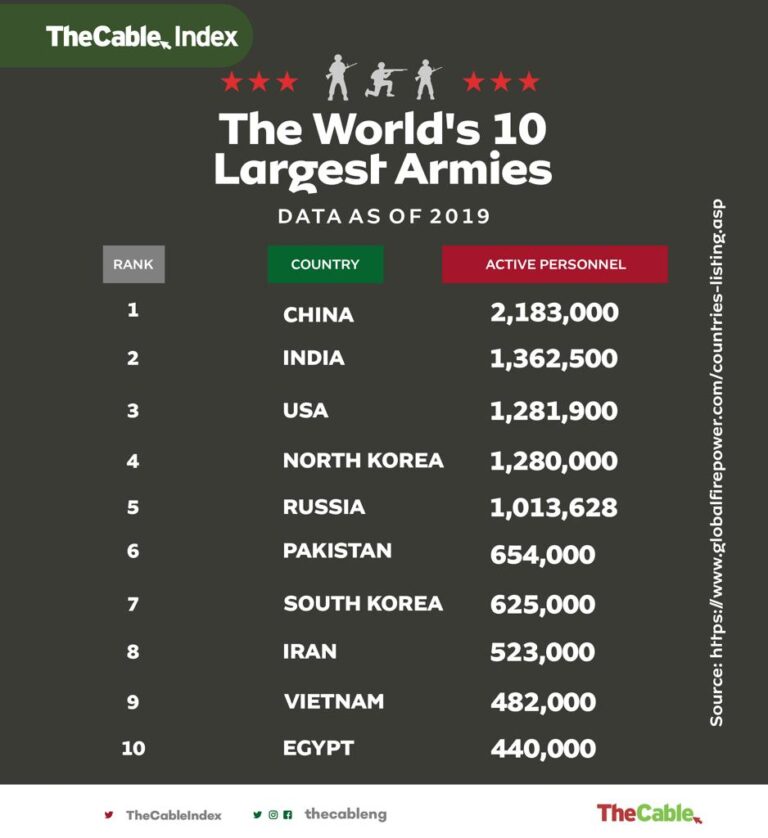
Nigeria’s unemployment rate has more than quadrupled in the last five years as the economy plunged into two recessions. Despite several policies by the government to stem the tide of unemployment in the country, the scourge has become a hydra-headed monster, hitting 33.3 percent in the three months through December 2020, up from 27.1 percent in the second quarter.
This means that a third of the 69.7 million-strong labour force in Nigeria, Africa’s largest economy, either did nothing or worked for less than 20 hours a week, making them unemployed. Another 15.9 million worked less than 40 hours a week, making them underemployed.
Suggesting a possible solution to the rising unemployment rate and growing insecurity in the country, Bola Tinubu, national leader of the ruling All Progressive Congress (APC), advocated for the enlistment of 50 million youths into the Nigerian army — although he has now sought to clarify that he made a mistake.
Speaking at a colloquium to mark his 69th birthday in Kano on Monday, he said such measure will achieve two aims: cut off the potential source of recruitment for bandits and criminals who may be looking to engage idle youths and reduce the number of unemployed youths in the country.
TheCable takes a deep dive into the possibility — or lack thereof — of recruiting such a number into the army.
WHAT IS THE COST IMPLICATION?
Recruitment into the Nigerian army can be into either the officer cadre or the other ranks, better known as recruits. The officer cadets are usually trained at the Nigerian Defence Academy (NDA) in Kaduna, while recruits are trained for nine months at the Nigeria Army Depot in Zaria.
A new recruit on completion of the nine months training earns the rank of a private.
According to the consolidated armed forces salary structure (CONAFSS) for the Nigerian military, a private earns between N50,000-N53,000 as a basic salary per month.
At N50,000 monthly, this amounts to a wage bill of N2.5 trillion monthly as the basic salary for 50 million new recruits. The N2.5 trillion is around 19 percent of the country’s N13.08 trillion 2021 budget, and it is also bigger than Lagos state’s N1.6 trillion budget for the current year.
The total number of armed forces personnel in Nigeria is around 223,000, while the army accounts for 125, 000 — its largest component. This is still small compared to an estimated population of 200 million. China has the largest military in the world with a total strength of 2.18 million active personnel for its 1.5 billion population.

THE NIGERIAN MILITARY REMAINS UNDERFUNDED
A total of N966.4 billion is earmarked for the ministry of defence in the 2021 budget, with the army taking the largest chunk of the allocation at N510.63 billion.
Further disaggregation of the army allocation shows that N460.95 billion is earmarked for personnel cost; salaries and wages will gulp N133.2 billion; local training at N3.59 billion; international training at N977.40 million.
Today, the Nigerian military, aside from being ill-equipped and underfunded, is overstretched on all fronts as it faces several internal crises in all the regions of the country.
Admittedly, the low-hanging fruits for the government should be more funding for the military in areas of modern equipment, training, and welfare of its personnel.
However, it is financially not feasible to draft 50 million youths into the army as suggested by the former Lagos state governor before his clarification.
END

Be the first to comment